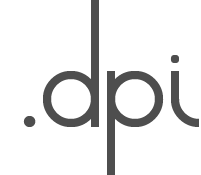La performativité en réseau : systèmes, plateformes et identité
« Il y a un élément de performativité dans le design Web. »

Conférence au festival Sight + Sound
26 mai 2013, Eastern Bloc
Conférencier-ère-s: Jennifer Chan, Vincent Chevalier, Emilie Gervais, Heather Dewey-Hagborg
Modératrice: Michelle Lacombe
Compte-rendu et photo par Deanna Radford
Afin de questionner les notions d'identité, de performativité et de surveillance sur Internet, le festival Sight + Sound d'Eastern Bloc a invité les artistes Jennifer Chan, Vincent Chevalier, Emilie Gervais, Heather Dewey-Hagborg et la modératrice Michelle Lacombe dans le cadre du panel intitulé « La performativité en réseau : systèmes, plateformes et identité ». Le propos de la discussion cadrait bien avec l'exploration artistique du festival portant sur les marchés noirs mondiaux. Chacun-e des conférencier-ère-s a comme site principal d'intervention l'environnement en ligne.
Guiding questions included: how do these artists perform their identity online? How do audiences react to and engage with these artists’ performative actions? How are they redefining performance given the variety of mediatized systems at their disposal? This compelling conversation occurred, scratching the surface of the ephemeral nature of identity, expression and the online, giving inspiration for further critical discussion and action.
"Identity is prismatic" Jennifer Chan said, quoting internet entrepreneur Christopher Poole. We take on numerous e-mail, social networking and other accounts and can express a number of personas depending on interest. [Online] "there is not true anonymity, just multiple names. There is a performative element of web design," said Chan.
"The prismatic element shows a more complex relational tool to explore, redefine, realign the body and perform in public space. [This vantage point] is a practical tool." said Michelle Lacombe, who is also a performance artist.
Vincent Chevalier questioned whether level of (internet) coding knowledge dictates level of personal agency. "Code literacy increases agency but it depends on how you use it." said Chan. "It's not a question of more or less agency." By "filtering my subjectivity through social media over and over, how does this effect agency and literacy?" questioned Heather Dewey-Hagborg.
Emilie Gervais' playful work often comprises found elements from online. Both Gervais and Chan borrow code from other sites, facilitating the re-creation of the familiar-simultaneously-unfamiliar visual elements. This disorienting effect occasionally takes on satirical and disarming proportions that draw you in and pose challenging questions related to art, sex, voice, authority and intimacy.
Vincent Chevalier discussed his PWIFd (Places Where I've Fucked), which pictures these locations using Google Images. Maintaining anonymity of his partners and the locations, the work contests loss of public spaces where gay cruising for sex can take place. He explains: "Privacy is under intense scrutiny and control already. Anonymous sex in certain spaces, places for men to escape homophobia - laws and technology have developed to diminish these spaces."
Dewey-Hagborg added Chevalier is "disclosing to the public the effect on behaviour by putting himself under increased surveillance." In this context of social media, said Chevalier, "[This is a] communication tool that aids democracy but there's something frighteningly anti-democratic too."
Collecting cigarette buts, hair, fingernails and gum from the streets of Manhattan and Brooklyn, Dewey-Hagborg generates images and sculptures of individuals as exploration of genetic representation. She has proven the lack of accuracy of the investigative tool by generating image and sculptural self-portraits with the same tools to show the level of inaccuracy inherent in the final product.
By interrogating traditional and popular conceptions of privacy, ownership, sexuality, copyright, surveillance and genetic determinism, these artists usurp said conceptions to raise important questions about performance and identity.
Conscientiously, their work reclaims and occupies online bodies of social power in the spirit of satire, social justice and self-determination, which occasionally falls under the black market domain. As Jennifer Chan said: "..Being aware of the conditions, media literacy is important and overturning notions of private and public. It's possible to be critical of the system from within."
